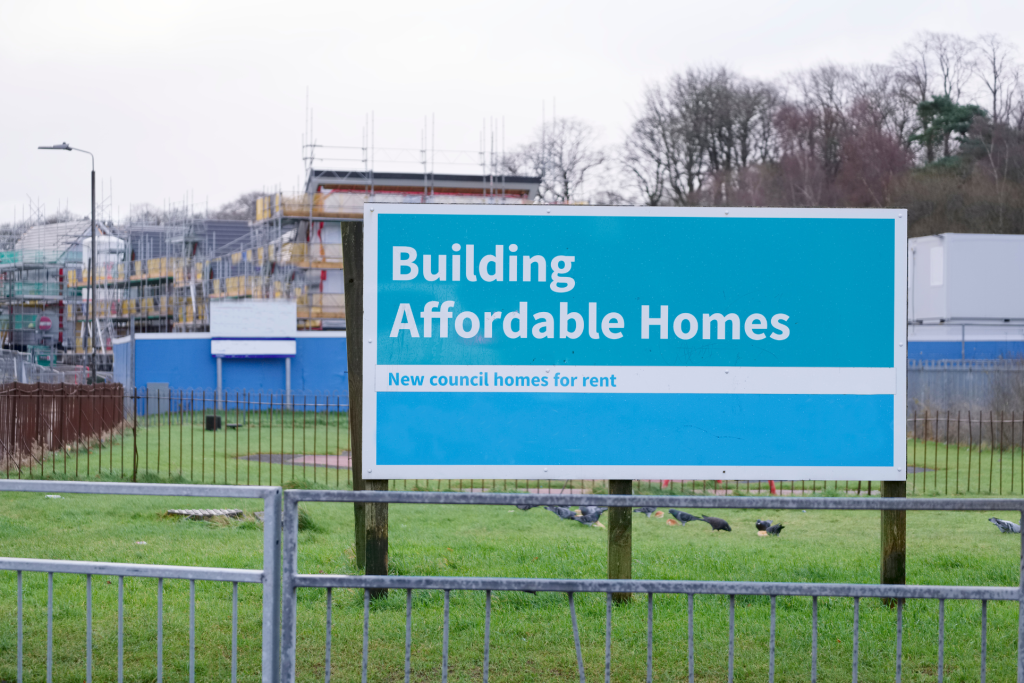Affordable Homes for All, Michael Gove’s Commitment to Inclusive Communities
Today’s speech by Michael Gove, regarding various aspects of housing, urban regeneration, and the significance of scientific progress in the UK. The speech highlighted the challenges faced by the country and proposes strategic solutions to address them.

One of the key highlights in the report is Michael Gove’s emphasis on the significant progress made in the housing sector. The delivery of the highest number of new homes in three decades, along with increased opportunities for first-time buyers, showcases the government’s commitment to tackling the housing crisis in the UK.
The speech also highlights the efforts being made to provide over 100,000 affordable homes through the Affordable Homes program. Michael Gove’s dedication to delivering tens of thousands of new homes specifically for social rent is a crucial step towards creating inclusive communities and meeting the needs of the most vulnerable members of society.
To achieve their ambitious goal of delivering one billion homes, they are utilising brownfield sites—a crucial resource for sustainable development. By focusing on brownfield development instead of eroding the Green Belt, they can create thriving communities, protect green spaces, and reduce urban sprawl.
Michael Gove discusses the challenges to future growth in the developed world, especially the economic pressures that necessitate radical action to unlock the supply of new homes. The report sheds light on the potential risks associated with certain proposals put forth by the Labor Party, such as borrowing large sums of money annually and the lack of support for sustainable pay settlements. These proposals, if implemented, could lead to inflation and threaten the foundations of economic recovery.
In contrast, the government’s long-term plan for economic recovery places housing as a critical pillar. The report highlights the emphasis on urban regeneration and a new inner-city renaissance as part of their strategy. The goal is to create successful cities with beautiful homes, flourishing public spaces, cultural amenities, safe streets, green areas, educational excellence, dynamic businesses, and excellent public services. The government’s commitment to regenerating 20 places in England, as outlined in the white paper, demonstrates its dedication to fulfilling this long-term vision for housing.
One of the cities that stands out in Michael Gove’s discussion is Cambridge. The report emphasizes Cambridge’s rich history of intellectual excellence and scientific leadership. However, the lack of lab space and research capacity, coupled with constraints on housing, have limited its potential for growth and hindered its ability to attract and retain talent. The report highlights the need for development in lab space, drawing a comparison to rival cities like Boston, where significant development has taken place.
To address these challenges, the government plans to develop a vision for Cambridge’s scientific progress. Peter Freeman, the newly appointed Chair of Homes England, will lead this effort. The report highlights the establishment of a Cambridge delivery group with 5 million backing to ensure the integration of neighbourhoods, promotion of innovation, and protection of green spaces. The scoping work will involve national and local partners to address housing, businesses, transportation, water supply, and public services. The vision also emphasizes the importance of healthy living, green spaces, and cultural institutions.
The report also highlights the inefficiency in the use of land in the UK, with more house building in rural areas than in urban areas. Michael Gove emphasizes the need for sustainable transport networks, promoting cycling and walking to reduce congestion in Cambridge. Expanding commercial infrastructure, including lab capacity, and creating new green spaces like Jesus Green and the Botanic Garden are crucial components of the plan. Additionally, the establishment of cultural centres like a natural history museum or concert hall will further enhance the quality of life in the city.
The report’s analysis extends beyond Cambridge to other cities like Manchester, Leeds, Sheffield, and Wolverhampton, where failing to densify the inner cities has limited opportunities for growth. It also highlights Barrow in Cumbria, a city with great potential for new investment and growth, particularly in engineering. The government aims to develop Barrow as a powerhouse in the north, with new homes and businesses.
In conclusion, this report presents the insights of Michael Gove, an influential speaker, who addresses critical issues related to housing, urban regeneration, and the role of scientific progress in the UK. The report highlights the achievements made in the housing sector, the challenges faced by Cambridge, and the government’s commitment to developing a vision for its scientific progress. Additionally, the importance of densification in inner cities and supporting growth in other regions of the country is emphasized. Overall, Michael Gove provides valuable insights and proposed solutions that can contribute to the long-term success and prosperity of the UK.






